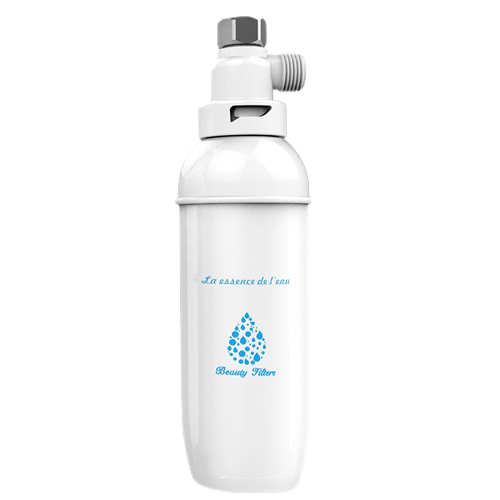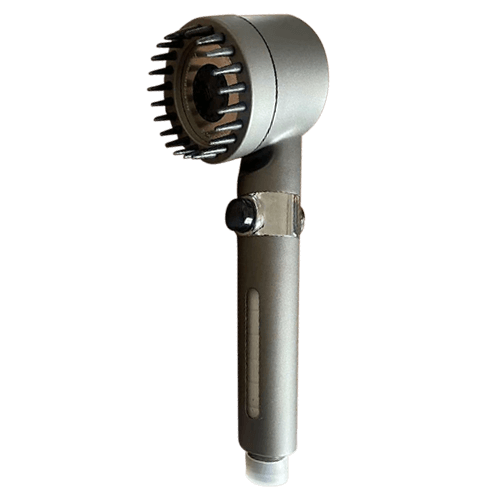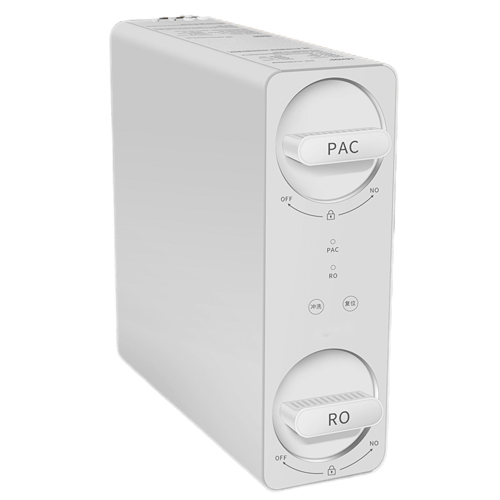The Ultimate Guide Of Household Water Filter
Types,Functions,Use and More
What is Water Filter?
Chapter 1
Water filter functions
Chapter 2
Type of water filter
Chapter 3
Water filter installation
Chapter 4
Filter Principle Classification
Chapter 5
Knowledge of water purifier
Chapter 6
Water filter test
Chapter 7
What to Look for in a Water Filter Supplier / Manufacturer
Chapter 8
Chapter 1
Request A Free Quote
We'd like to work with you
Send us a message if you have any questions or request a quote. Our experts will give you a reply within 24 hours and give your solutions.
E: info@pureflowz.com
T:+86 757-25338848
What Are Water Filters?
Water filters are essential devices that purify and improve the quality of water, making it safe and suitable for various uses. Their primary role is to remove a range of contaminants – from sediments and bacteria to harmful chemicals like chlorine and lead – thereby enhancing both the safety and taste of the water.
Used in diverse scenarios, water filters find their place in residential kitchens for clean drinking and cooking water, in bathrooms to safeguard skin and hair health, and in commercial settings like offices and cafes for providing purified water to customers and employees. The type of water filter chosen greatly depends on the specific needs of the setting: pitcher filters are ideal for small-scale, personal use, under-sink filters cater to family needs without occupying space, and whole-house systems ensure purified water throughout the home.
Each type of filter operates differently, offering varying levels of purification based on the technology used. This article delves deep into the principles behind water filters, explaining how different types work and their suitability for various applications, providing a comprehensive understanding of these vital devices.
Chapter 2
Water Filter Functions
Each water filter serves a unique function, addressing specific water quality issues. From immediate faucet filtration to advanced reverse osmosis purification, our range ensures that you have access to clean, safe, and healthy water in every aspect of your daily life.
Faucet Water Filter
- Key Benefits: Removes common contaminants like chlorine, lead, and sediments. Ideal for cooking and drinking, it improves taste and odor.
- Usage: Suitable for kitchens, offices, and anywhere with a standard faucet.
Shower Filter
- Key Benefits: Protects skin and hair by reducing chlorine, heavy metals, and other harsh chemicals. Enhances water quality for a healthier shower experience.
- Usage: Essential for bathrooms, particularly in areas with hard water.
Pre-Filter
- Key Benefits: Extends the life of primary filters by preventing clogging. Effective in removing dirt, rust, and sediment.
- Usage: Ideal for homes and businesses as a part of a larger water filtration setup.
Water Filter Pitcher
- Key Benefits: Convenient and easy to use, it removes contaminants like chlorine and heavy metals. Perfect for refrigeration and serving clean, cold water.
- Usage: Versatile for home, office, or travel use.
RO (Reverse Osmosis) Water Purifier
- Key Benefits: Offers the highest level of purification, removing up to 99% of all contaminants, including TDS, heavy metals, and bacteria.
- Usage: Ideal for households and businesses looking for the highest standard of water quality.
Chapter 3
Type of Water Filter
Water filtration technology has evolved to meet diverse needs, resulting in various types of water filters, each with unique features and specific applications.
Faucet Water Filters:Easy-to-install, directly attached to your faucet.
Shower Filters:Fits to shower heads or plumbing to filter bath water.
Pre-Filters: Installed before the main filtration unit, captures large particles.
Water Filter Pitchers:Portable pitchers with built-in filters.
Reverse Osmosis (RO) Systems:Multi-stage filtration including a semi-permeable membrane.
Whole House Water Filters:Large systems installed at the water entry point of a house.
Under-Sink Water Filters:Installed under the sink, connected directly to the water line.
Countertop Water Filters:Compact units that sit on the countertop, connecting to the faucet via a hose.
Chapter 4
Water Filter Installation
Installing a water filter in your home is a simple yet impactful way to enhance your daily water quality. Here’s a guide to installing different types of water filters:
Faucet Water Filters
- Ease of Installation: Designed for hassle-free setup, these filters can be installed directly onto your faucet in just a few minutes.
- Compatibility: With a universal design, they fit 99% of standard faucets. Just remove the aerator, select the appropriate adapter from the kit, and attach the filter.
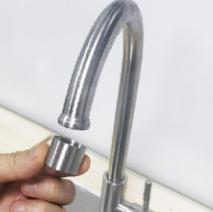





Shower Filters
- Simple Attachment: Unscrew your current shower head and replace it with the filter shower head.
- Universal Fit: These filters are equipped with a global standard 4-point interface, ensuring compatibility with nearly all shower types.
Pre-Filters
- Foundation of Filtration: Pre-filters act as the first line of defense in your water filtration system, capturing larger particles and sediments.
- Installation: Typically installed at the point where water enters your home, they prepare the water for further purification by other filters.
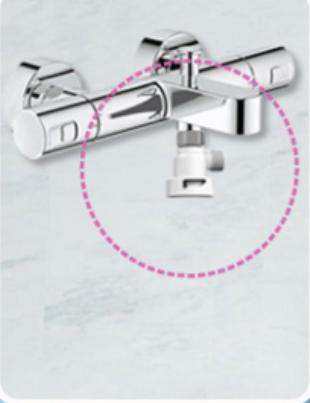

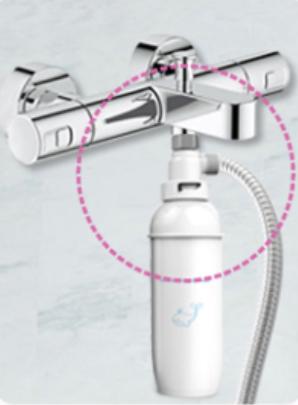

Under-Sink RO Systems
- Advanced Purification: Reverse Osmosis (RO) systems offer a more thorough filtration process, significantly reducing a wide range of contaminants.
- Setup Considerations: While installation is more involved than simpler filters, these systems fit neatly under your sink and provide a continuous supply of purified water
Chapter 5
Filter Principle Classification
PP Cotton Cartridge
Also known as meltblown PP cartridge, using non-toxic and odourless polyester fibre particles, after heating and melting, spraying silk, traction, accepting the formation and made of tubular cartridge; with small size, large filtering area, pollution-free, easy to install and replace, etc., the filtration precision is 5 microns (μm). In addition to faucet water purifiers, other water purifiers generally use PP cotton cartridge at the first stage.
Activated Carbon Cartridge
Generally used coconut shell high temperature firing, commonly known as coconut shell activated carbon, according to its adsorption characteristics, activated carbon is mainly used to remove the odor, colour, purification of water. Activated carbon can remove some of the residual chlorine and improve the taste. Generally speaking, activated carbon is used in all types of water purifiers. The average filtration accuracy is 0.2-0.5 micron (μm).
Ceramic Cartridge
Ceramic material is mainly diatomaceous earth, a white diatomaceous earth, with an average filtration precision of 0.2-0.5 micron (μm), which can basically remove bacteria (E. coli, Salmonella, Staphylococcus aureus and moulds and other pathogenic germs), silt, rust, red worms and various suspended particles from the water. The normal number of times the ceramic cartridge can be brushed is 10-20 times. Through simple mechanical clearing and brushing, the flux can be fully restored without deep contamination of the membrane and clogging of the pores, which can effectively prevent the re-pollution of the purified water. General faucet water purifier cartridge are ceramic + activated carbon cartridge.
Ultrafiltration Membrane Cartridge
(Ultrafiltration, UF for short) using hollow fiber filtration new technology, filtration accuracy of 0.01 micron (μm), can completely filter out sediment, red worms, bacteria, rust, colloids and other harmful substances in the water, retain the original trace elements and minerals in the water. The ultrafiltration membrane cannot remove residual chlorine and improve taste.
RO Membrane Cartridge
(Reverse Osmosis, referred to as: RO) filtration precision 0.0001 micron (μm), can thoroughly filter out inorganic salts, heavy metal ions, organic matter, colloids, bacteria, viruses and other impurities in the water, filtering is only water molecules of pure water.
Chapter 6
Knowledge of Water Filter
TDS
Total Dissolved Solids (TDS) encompass the collective presence of both organic and inorganic substances, such as minerals, salts, metals, and ions, dispersed in a specific volume of water.
The following list details common total dissolved solids that may be present in your water.
| Column 1 | Column 2 |
|---|---|
| Calcium | Arsenic |
| Chloride | Iron |
| Magnesium | Chlorine |
| Potassium | Sodium |
| Zinc | Fluoride |
| Aluminum | Bicarbonates |
| Copper | Sulfates |
| Lead | Pesticides |
| Herbicides |
pH
The pH scale measures the acidity or alkalinity of a solution based on its hydrogen ion concentration. Ranging from 0 to 14, a pH of 7 is considered neutral, values below 7 are acidic, and those above 7 are alkaline. Pure water, in its intrinsic state and at room temperature, has a pH of 7, making it neutral. This neutrality arises from water’s unique molecular structure. Each water molecule can dissociate into a hydrogen ion (H+) and a hydroxide ion (OH-). In pure water, the concentrations of these ions are equal, resulting in a balanced, neutral pH.
| Substance | pH Value |
|---|---|
| Battery Acid | 0 |
| Vinegar | 2.5-3.5 |
| Lemon Juice | 2-3 |
| Pure Water | 7 |
| Blood | 7.35-7.45 |
| Seawater | 8 |
| Bleach | 12 |
Chapter 7
Water Filter Test
Water filtration involves various complex processes to ensure every drop of water is pure and safe.
To help you gain insight into these processes, we’ve outlined some of the most common and essential tests conducted in the field. These tests are crucial for assessing different aspects of water filter performance, from chemical purity to mechanical resilience. Below, we delve into the specifics of each test, providing a glimpse into the rigorous standards that govern the water filtration industry.
Water Hammer Test
The Water Hammer Test is conducted to assess the structural resilience of water filters against sudden and extreme fluctuations in water pressure.
This simulation of ‘water hammer’ conditions is crucial for verifying that the filters can withstand these abrupt changes without any loss of functionality or compromise in their structural integrity.
Physicochemical Testing
This testing method focuses on analyzing a variety of water quality parameters such as turbidity, residual chlorine, pH levels, and other chemical contaminants.
The purpose is to ensure that the water filter effectively removes or reduces these substances, thus providing safe and clean water. It is a vital process to confirm that the filters meet stringent water quality standards.
Salt Spray Test
The Salt Spray Test is designed to evaluate the corrosion resistance of the water filters. This test exposes the filters to a highly saline environment, which simulates the conditions of saltwater exposure.
The primary goal is to ascertain that the filters maintain their integrity and do not corrode when exposed to such environments, ensuring longevity and durability in various operational conditions.
Mechanical Reliability Test
The Mechanical Reliability Test is essential for ensuring the endurance and operational stability of our water filters under mechanical stress and usage.
This test involves subjecting the filters to various physical forces and conditions that they might encounter during regular operation. The objective is to confirm that the filters maintain their performance, remain free from physical defects, and operate reliably over their intended lifespan, even under repeated or prolonged mechanical stress.
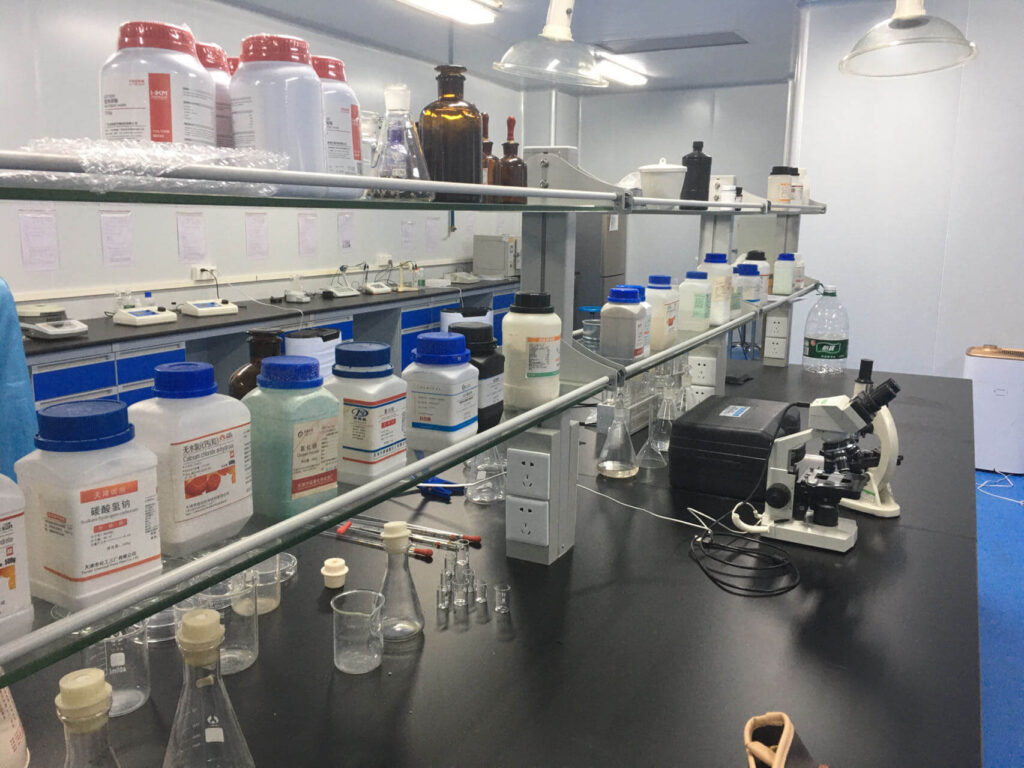

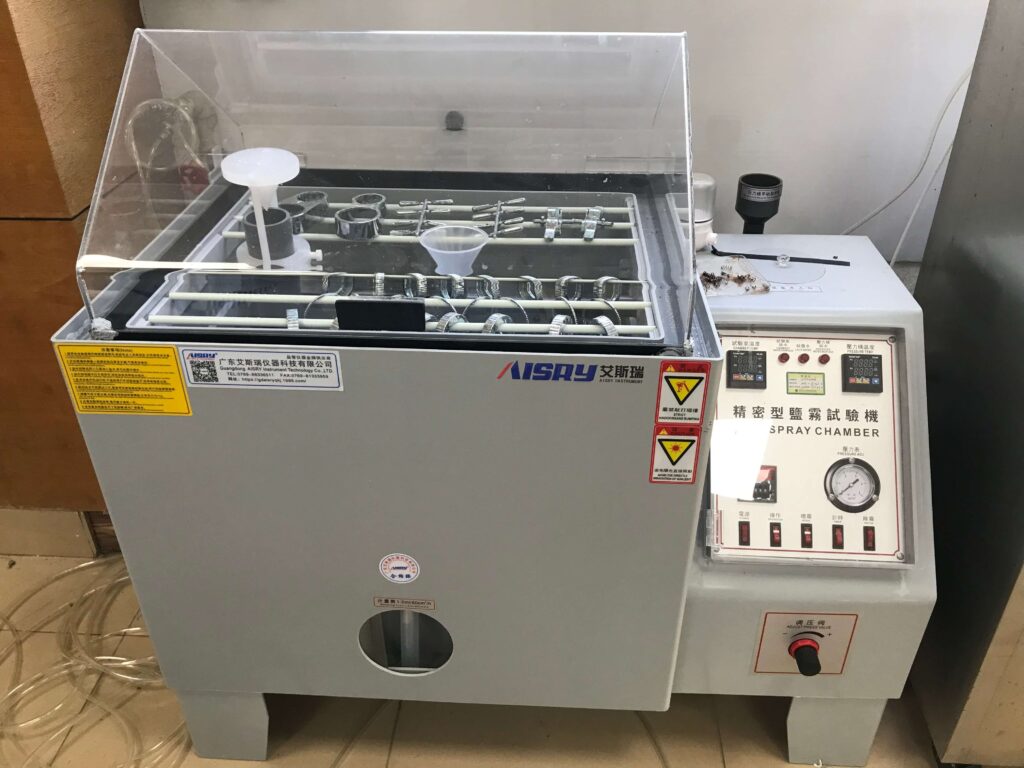
Chapter 8
What to Look for in a Water Filter Supplier / Manufacturer
Industrial Certifications
Seek suppliers with ISO 9001 certification for quality assurance and technical proficiency.
An ISO 9001 certified supplier guarantees products that meet high-quality standards. They are equipped to quickly resolve technical issues, ensuring reliability and efficiency.
R&D Capabilities
Choose suppliers with strong R&D for innovative OEM/ODM solutions that make your products stand out.
After-Sales Service
Prioritize suppliers offering comprehensive after-sales support, including installation, filter replacement, and technical assistance.
Established Collaborations
Review the supplier’s existing partnerships for insights into their industry reputation and reliability.
In Summary
In Summary
The vast array of water filter options available can be daunting for any buyer. However, armed with the appropriate knowledge about water filters, choosing the right one becomes a straightforward task. Water filters differ in their filtration capabilities and applications.
Understanding the specific needs your water filter must fulfill significantly narrows down your choices. This guide has outlined the essential factors to consider before purchasing a specific water filter, ensuring you make an informed decision tailored to your requirements.
Request A Free Quote
We'd like to work with you
Send us a message if you have any questions or request a quote. Our experts will give you a reply within 24 hours and give your solutions.
E: info@pureflowz.com
T:+86 757-25338848

